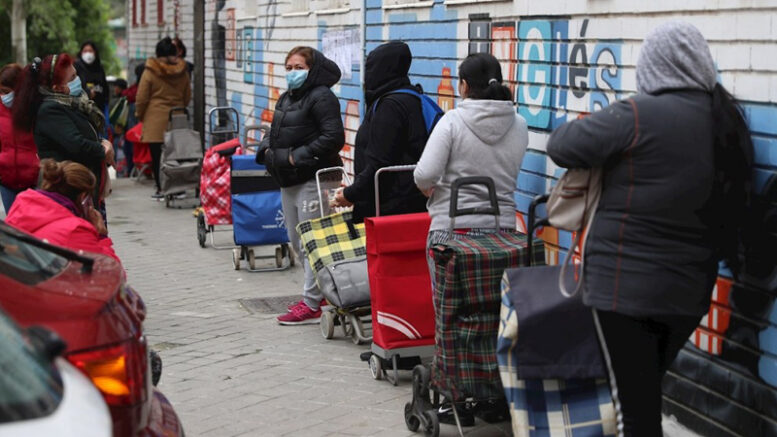Spain’s coalition government has given the green light on Friday to a new Minimum Living Wage program, a guaranteed minimum income scheme set to help an estimated 850,000 vulnerable families and which delivers on one of the leading pledges made in the governing coalition pact signed in January between the Socialist party and Unidas Podemos.
Approved Friday by the cabinet-level Consejo de Ministros, the coalition government led by President Pedro Sánchez hopes that the measure initially put forward by 2nd Vice President and Social Affairs Minister Pablo Iglesias of Unidas Podemos will put an end to as much as 80 percent of the severest poverty in Spain.
The move was immediately welcomed by Spain’s main labour federations and by non-governmental organizations that work to alleviate poverty in Spain.
Under the new program, which has yet to receive final approval by Spain’s Congress, the most vulnerable households in Spain will receive a guaranteed income ranging from 461 euros to 1,105 euros monthly, calculated according to the number of household members and the amount of income earned by family members in the previous year.
A single adult, for example, will receive just 462 euros monthly under the new program, while a couple without children will be guaranteed 600 euros monthly. For couples with children, the amount increases per each child: a couple with one dependent child will receive 738 euros; with two dependent children, 877 euros; and three or more dependent children, a maximum of 1,015 euros monthly per household.
► News Sources: El País, Público and El Mundo …
Across Spain, there are currently 17 different anti-poverty programs, each run by the regional autonomous community. But distribution of aid through these programs is very uneven and only reaches an estimated 300,000 households. The new guaranteed minimum income program will be nationwide and will nearly triple the number of households who benefit.
The distribution of funds will be the remit of the National Institute of Social Security, with the exception of the Basque Country and Navarra, which will assume distribution of the benefit payments in their respective communities. All the local paperwork and administration of the program will be handled by the social services departments of local municipalities.
The new program has yet to make its way through the congressional approval process, as the government decides whether to formally introduce the measure as a Ley Decreto, subject only to an up-and-down vote with no amendments or debate, or to go the longer route of regular legislation that would allow opposition parties to propose amendments. The former would allow the government to push the measure through Congress rapidly, while the latter could ensure greater “buy-in” from opposition parties, leading to less likelihood that the program would be immediately overturned by any change in government.
So far, both the opposition leading conservative Partido Popular and centre-right Ciudadanos parties have said they would support the measure, providing amendments are allowed, while the ultra-right VOX party has said it will vote against the legislation.
► Read more in English at: El País, EU Observer and France24 …
► Click to read more news about Poverty in Spain …
Check out more news from Spain about:
► Animal Welfare ► Corruption/Transparency ► Discrimination ► Economy ► Education ► Elections ► Environment & Sustainability ► Fair Trade & Development Aid ► Healthcare ► Historical Memory ► Housing & Homelessness ► Human Rights ► Labour & Unemployment ► LGBT+ ► Politics ► Poverty ► Refugees & Migration ► Technology & Social Enterprise ► War & Peace ► Women’s Rights

All images at ProgressiveSpain.com are the copyright of their respective authors/owners and are reproduced here for non-commercial, journalistic purposes in accordance with Fair Use doctrine. All other content is Copyright © 2015-2020 ProgressiveSpain.com and is licensed under a Creative Commons Attribution-NonCommercial-ShareAlike 4.0 International License.

